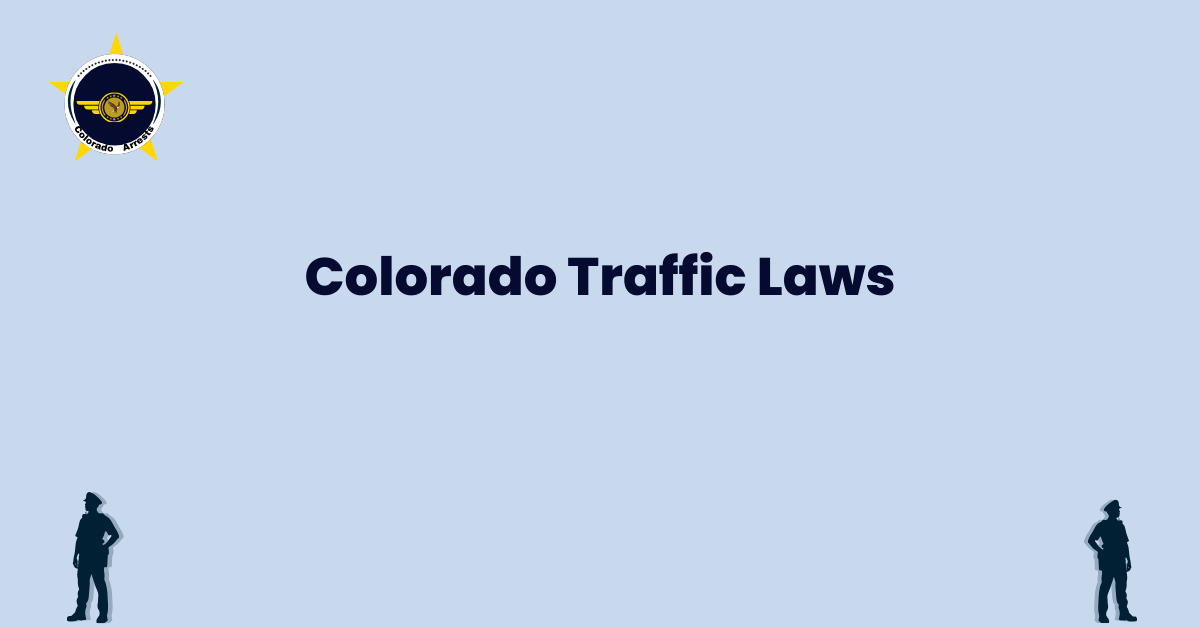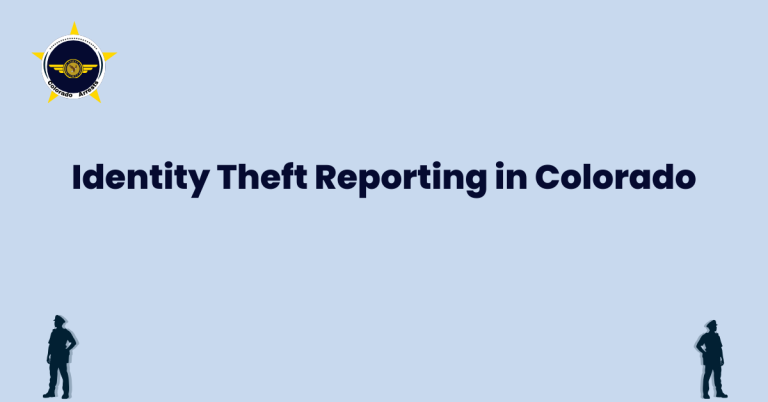Colorado Traffic Laws
Compliance with and abiding by traffic laws is essential for all drivers to ensure their safety and the safety of others on the road. In Colorado, traffic laws are in place to regulate and control the flow of vehicles, pedestrians, and cyclists, promoting efficient transportation and reducing the risk of accidents.
Colorado’s traffic laws encompass a wide range of regulations, from speed limits and right of way rules to seat belt requirements and DUI penalties. By familiarizing yourself with these laws, you can make informed decisions while driving and avoid costly fines or even more severe consequences.
Common Traffic Violations and Their Consequences
While it is important to understand and abide by traffic laws, it is equally essential to be aware of the common traffic violations and their consequences. By familiarizing yourself with these violations, you can avoid the risk of breaking the law and facing penalties.
Speeding
One of the most common traffic violations is speeding, which involves driving above the designated speed limit. Speeding not only increases the likelihood of accidents but also attracts hefty fines. In Colorado, the penalties for speeding vary based on the severity of the offense and can range from fines to license suspension.
Running Red Lights or Stop Signs
Another serious traffic violation is running red lights or stop signs. Ignoring traffic signals not only endangers your life but also jeopardizes the safety of others on the road. The consequences for running red lights or stop signs can include fines, points on your driving record, and even mandatory traffic school.
Driving Under the Influence (DUI)
Driving under the influence of alcohol or drugs is not only illegal but also extremely dangerous. Colorado has strict laws when it comes to DUI offenses, and the penalties can be severe. If caught driving under the influence, you may face fines, license suspension, mandatory alcohol education programs, and even jail time.
Failure to Yield Right of Way
Failure to yield the right of way is another traffic violation that can lead to accidents and injuries. It is important to understand and follow the right of way rules to prevent collisions. Violating these rules can result in fines, points on your driving record, and potentially increased insurance premiums.
Not Wearing Seat Belts
Wearing seat belts is not only a legal requirement but also a crucial safety measure. Failure to wear seat belts can result in fines and points on your driving record. Additionally, not wearing seat belts significantly increases the risk of severe injuries or fatalities in the event of an accident.
Stay Informed and Drive Safely
To ensure your safety and the safety of others on the road, it is essential to stay informed about Colorado’s traffic laws. By abiding by these laws and avoiding common traffic violations, you can contribute to a safer and more efficient transportation system. Remember, your actions behind the wheel have a direct impact on the well being of everyone on the road. Drive responsibly and prioritize safety at all times.
FAQs
What are the speed limits in Colorado?
In Colorado, the speed limits vary depending on the type of road. On urban interstates, the speed limit is typically 65 mph, while on rural interstates, it can go up to 75 mph. On two lane highways, the speed limit is usually 55 mph, and in residential areas, it is 30 mph. However, it is important to always obey posted speed limit signs and adjust your speed according to road and weather conditions.
What are the right of way rules in Colorado?
Right of way rules in Colorado determine who has the legal right to proceed first in certain traffic situations. For example, when approaching an intersection with a stop sign, the vehicle that arrives first has the right of way. In general, vehicles already in the intersection or on a through street have the right of way over vehicles entering or crossing the intersection. It is crucial to always yield the right of way to avoid collisions and maintain traffic flow.
Are seat belts mandatory in Colorado?
Yes, wearing seat belts is mandatory for all occupants of a vehicle in Colorado. Both the driver and all passengers must wear seat belts, regardless of their age. Failure to comply with this law can result in fines and penalties. Seat belts are essential for preventing injuries and saving lives in the event of a collision.
What are the penalties for driving under the influence (DUI) in Colorado?
In Colorado, driving under the influence of alcohol or drugs is a serious offense. The penalties for a DUI conviction can vary depending on factors such as the driver’s blood alcohol concentration (BAC) and the number of prior offenses. Penalties may include fines, license suspension, mandatory alcohol education programs, probation, and even jail time. It is crucial to never drink and drive to ensure the safety of yourself and others on the road.
Can I use a handheld cellphone while driving in Colorado?
No, using a handheld cellphone while driving is prohibited in Colorado. It is against the law to use a handheld electronic device for any purpose while operating a motor vehicle, including texting, talking, or browsing the internet. However, you can use a hands free device or Bluetooth technology to make calls while driving. Distracted driving is a significant cause of accidents, so it is essential to focus on the road and avoid distractions.
Are bicycles subject to traffic laws in Colorado?
Yes, bicycles are subject to traffic laws in Colorado. Bicyclists must follow the same rules and regulations as motor vehicles, including stopping at red lights and stop signs, yielding to pedestrians, and using hand signals for turns. Bicycles are considered vehicles under Colorado law, and both cyclists and motorists share the responsibility of obeying traffic laws to ensure everyone’s safety on the road.
Understanding and abiding by traffic laws is crucial for all drivers in Colorado. By familiarizing yourself with these laws and practicing safe driving habits, you can contribute to the efficient and safe transportation system in the state. Remember to always stay informed, be attentive, and respect the rights and safety of other road users.







